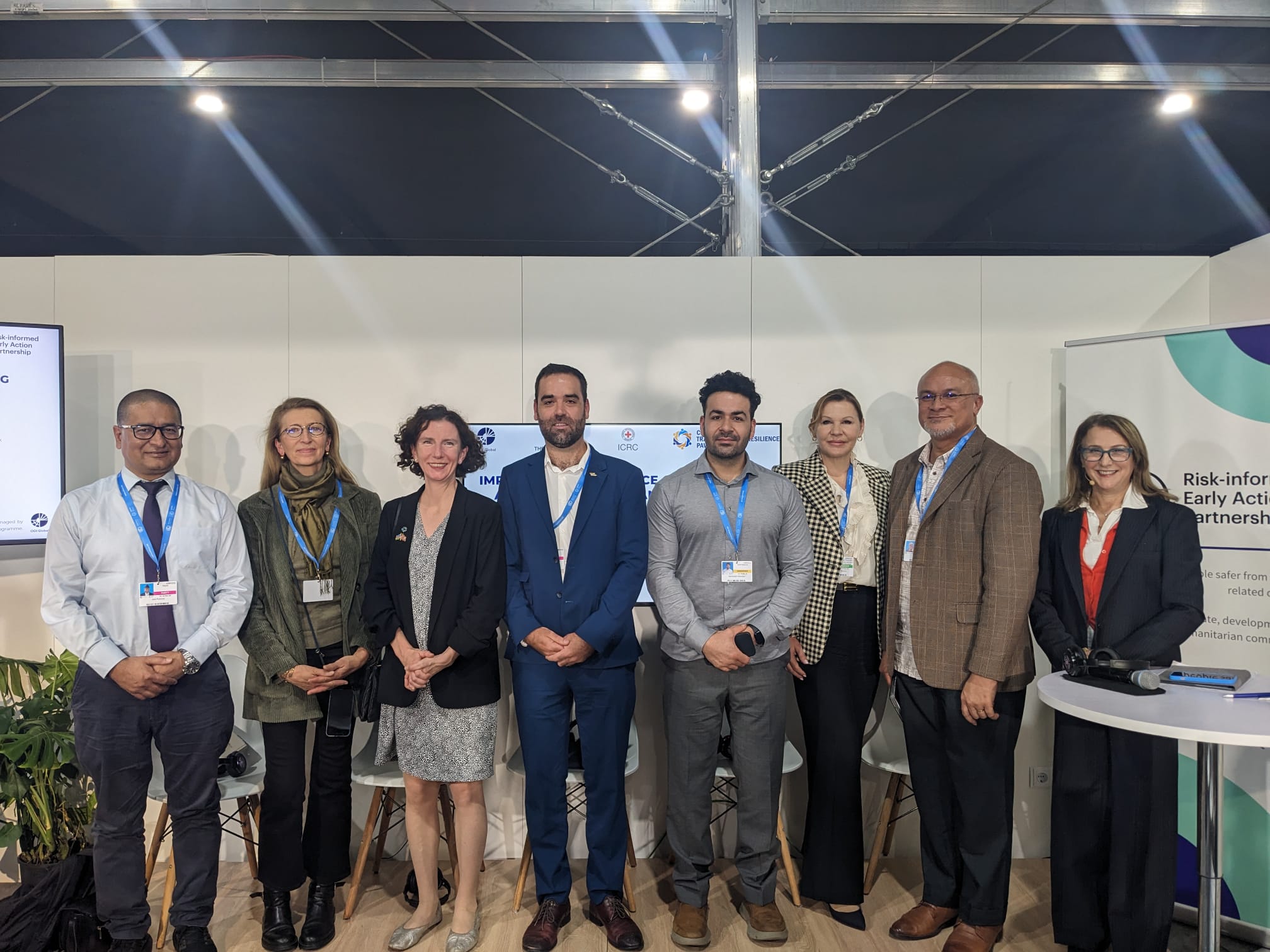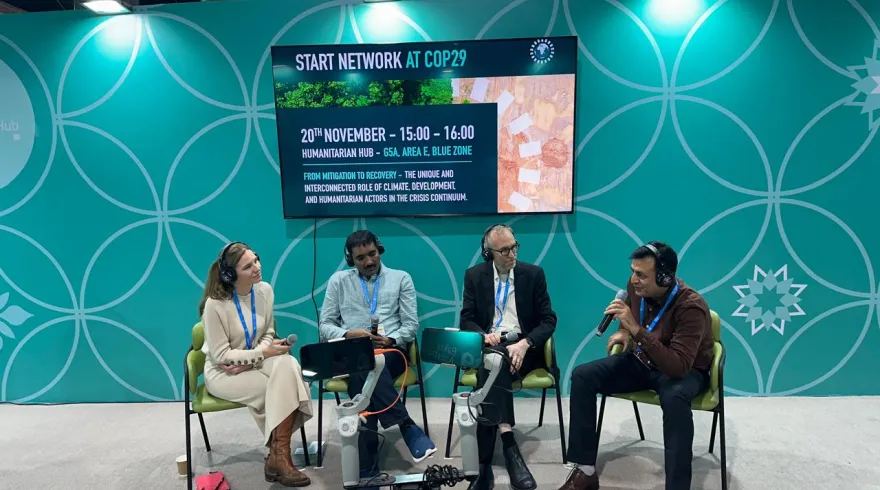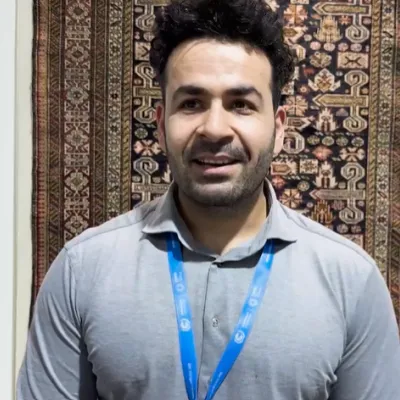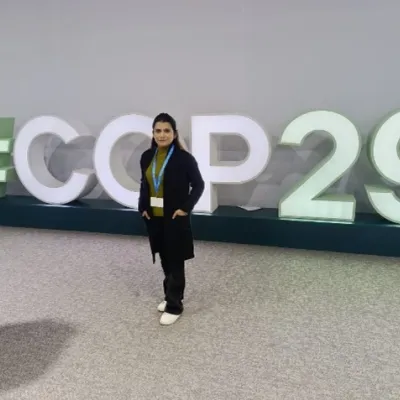
COP29: REFLECTIONS AND WAY FORWARD
Dubbed the ‘Finance COP’, the expectations for this year’s conference were significant. Start Network’s engagement in the lead up to and during COP29 reflected our values as a system change organisation.
Published:
Time to read: 6 minutes
COP29, the much-anticipated climate change conference, has ended. Dubbed the ‘Finance COP’, the expectations for this year’s conference were significant. Parties gathered in Baku to negotiate the new climate finance agreement for the next decade, representing a critical opportunity to demonstrate ambition and enable bolder and faster climate action.
Start Network’s engagement in the lead up to and during COP29 reflected our values as a system change organisation. Our members shaped the aims, key messages, and policy asks of our collective campaign. Together, we were calling for more innovative financing, at the right time, for the right actors. We were also on the ground in Baku engaging with a range of actors from the climate, development, and humanitarian spheres to share this call to action.
Key moments from our engagement at COP29:
- Start Network participated in 8 sessions, covering topics such as locally-led anticipatory action, community- and locally-led disaster risk reduction, loss and damage, anticipatory action in fragile and conflict settings, and the humanitarian-development-climate nexus.
- This year, we strived to enhance local and national member representation at COP. Representatives from four Start Network members joined our COP29 delegation – from Afghanistan, South Sudan, Pakistan, and India. They participated in sessions on the Getting Ahead of Disasters Charter alongside the UK Minister for International Development, Rt Hon Anneliese Dodds MP, and on the humanitarian-development-climate nexus.
- Start Network led a session titled ‘From mitigation to recovery – The unique and interconnected role of climate, development, and humanitarian actors in the crisis continuum’, with panelists from HelpAge International, Humanitarian Aid International (HAI), and DanChurchAid. The session explored how the three sectors could collaborate more effectively to ensure that communities on the frontlines of the climate crisis receive timely and coordinated support.

From mitigation to recovery: The unique and interconnected role of climate, development, and humanitarian actors in the crisis continuum'- Start Network led session at COP29
Reflections on COP29’s outcomes
New Climate Finance Goal lacks Ambition
The agreement reached at COP29 will define the climate finance landscape for the next decade. Despite being billed as the “Finance COP”, the New Collective Quantified Goal (NCQG) adopted at COP29 fails to reflect the ambition needed to achieve the goals of the Paris Agreement and meet the scale of the climate crisis. Parties agreed to provide USD 300 billion per year by 2035 – a pledge which falls far short of the USD 1.3 trillion in public funding that developing countries and civil society organisations were demanding. The commitment to provide USD 300 billion by 2035 lacks ambition and does not reflect the urgency of existing and future needs. In setting the target to be achieved by 2035, the new agreement leaves the door open for developed countries to backload and delay spending on climate finance – as was the case with the previous goal which was met two years after the deadline. The agreement also makes no provision that climate finance should be “new and additional” raising concerns that this target will be met by diverting existing humanitarian and development funding.
Access to Climate Finance remains a Concern
The fact that the NCQG does not formalise access mechanisms for climate finance is a key concern. Rather, the text only urges all climate finance actors to strengthen efforts to enhance efficient and effective access. Despite being the first responders when a climate hazard hits, existing financial mechanisms for climate action remain inaccessible to local actors. More needs to be done to ensure that climate finance benefits and is available to local organisations and communities.
Missed opportunities on Loss and Damage
We regret that the NCQG does not cover funding for Loss and Damage and only acknowledges the significant gaps that remain in responding to the increased scale and frequency of loss and damage. This is a missed opportunity. The steps taken to fully operationalise the Fund for responding to Loss and Damage (FRLD) are positive, however serious concerns remain around the Fund’s sustainability while it is capitalised on a purely discretionary basis. Similarly, it is imperative that local actors are able to access funding through the FRLD – including local and national actors in fragile and conflict-affected states who have long received a fraction of total climate finance flows.
Increased recognition of the importance of locally-led climate solutions
We welcome the NCQG’s recognition of the importance of locally-led approaches and text urging Parties to increase support for locally-led adaptation to this end. We also welcome efforts to promote the inclusion and extension of benefits to vulnerable communities and groups in climate finance efforts, including local communities. It is critical that this is more than words on paper. Local actors have the expertise, knowledge, and understanding of their local climate contexts and needs in crisis contexts – this fact must be recognised to strengthen responses to climate risks.
Ways forward
With the NCQG now agreed and new funds committed to the FRLD, it is crucial that we keep up the momentum to ensure that funding reaches affected and at-risk communities and equips local and national actors with the systems and plans to minimise the impacts of climate hazards and avoid the bill for loss and damage escalating even further.
While humanitarians are often seen as the actors of last resort, intervening only after a climate hazard has hit, at COP29 we saw encouraging signs that the innovative, risk-informed approaches that humanitarian organisations have pioneered to anticipate and respond more effectively to crises are entering mainstream climate discussions. This needs to be backed up by increased levels of pre-arranging financing which allows funds to scale up anticipatory approaches.
Finally, Start Network, as a system change organisation, highlighted that, while our roles in the crisis continuum differ, climate, development, and humanitarian actors share the same goals: addressing immediate needs, building resilience, and enabling long-term recovery. There is significant potential for greater collaboration, coordination, and bold, joint action to address the escalating impacts of the climate crisis which puts local communities at the centre. It is our hope that COP30, taking place in Brazil, will reinvigorate momentum to properly resource the Fund for responding to Loss and Damage, and put the real-world challenges faced by the Global South worldwide at the forefront of conversations.

I had an amazing two days at COP29. We are seeing the whole system shifting: I heard about the development-humanitarian nexus and how the two sectors need to work together, with communities at the centre leading change. I even heard the term ‘anticipatory development’ because we are inspiring a shift, not only in the humanitarian sector, but providing examples and inspiration for the development sector. The Afghanistan Humanitarian Hub and the rest of Hub community are going to be the leaders, creating the knowledge, examples, and inspiration for the future. I’m delighted to have been able to attend COP and give Afghan civil society, Afghan communities, and the Afghanistan Humanitarian Hub a voice and bring the messages we want the rest of the world to hear and attention to why the problem is so severe in Afghanistan.”Samiullah Hamidee – Director General, OSED and Chair, Afghanistan Humanitarian Hub

“COP29 was a powerful reminder of the urgency and scale of the climate crisis. Seeing the global push for locally-led solutions reaffirmed my belief that the people most affected by climate change must be at the heart of decision-making and action. While the progress on initiatives like the Loss and Damage Fund is promising, the challenge lies in ensuring these commitments lead to real, timely support for vulnerable communities.This experience deepened my resolve to advocate for equitable climate action and innovative solutions that build resilience and empower those on the frontlines of the crisis.”Zunaira Shams – Community World Service Asia
We are grateful to our partners for providing a platform for us to highlight the need for more innovative finance, at the right time, for the right actors – Risk-Informed Early Action Partnership (REAP), Intergovernmental Authority on Development (IGAD) Climate Prediction and Applications Centre, Gallagher Re, Eco-Social Development Organization (Start Network member), Red Cross Red Crescent Climate Centre, Climate Risk and Early Warning Systems (CREWS), Anticipation Hub, UN Office for the Coordination of Humanitarian Affairs (OCHA), and Global Shield against Climate Risks.
Hear more from our member Rajeev Jha on his COP29 experience:
- Voices, Visions, and Vital Actions: Reflections on COP 29
